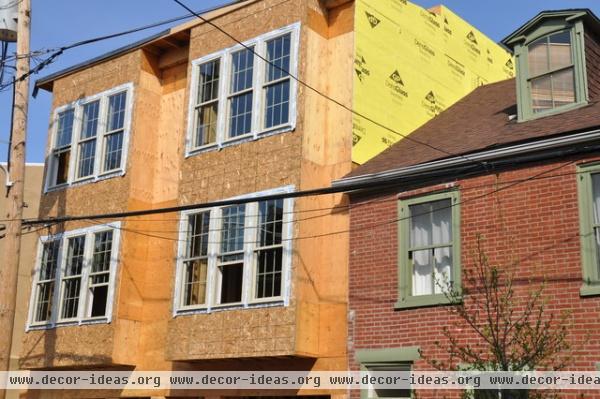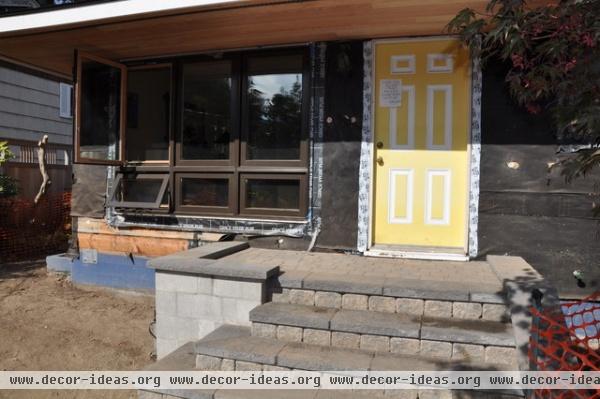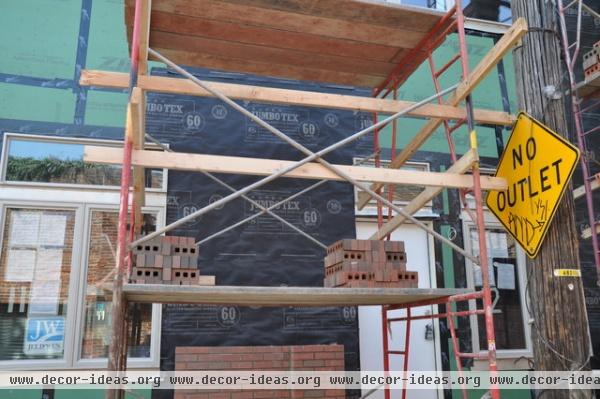5 Steps to Help You Hire the Right Contractor
http://decor-ideas.org 08/24/2013 08:20 Decor Ideas
Building your dream home is one of the most exciting things you'll ever do, but all that excitement comes with a lot of responsibility. Hiring the best general contractor for you and your project is an extremely important decision. That choice will determine the quality of craftsmanship and will minimize emotional stress and unexpected costs. Bringing in the right contractor early in the design process is one of the most important ingredients in staying on budget and on schedule during construction.
Here are five simple steps to help you hire the right contractor for your project.

1. Get referrals. Talk with people you know and trust. Your architect is an obvious source, but talk with family, friends, neighbors, lawyers, real estate agents and others who have built projects similar to yours.
Browse professional listings to find general contractors in your area. Check out their reviews and browse photos in their portfolios to see how their work lines up with the scope of your project. You can even message them to get a conversation going.
Are there recently completed or under-construction projects in your area? Ask the owners about their contractor and the working relationship they have with him or her.
2. Verify licenses. Make sure your contractor candidates are licensed and in good standing with your state license board. Ask to see the contractor’s pocket license, picture I.D. and certificate of insurance.
Proper licensing demonstrates a company’s best practices management, but hiring a licensed contractor will also protect you. For example, worker's compensation insurance is a contractor’s responsibility, not a property owner’s, but that's not the case if a contractor is not licensed or does not carry proper insurance.
In California anyone who contracts to perform work on a project valued at $500 or more, including labor and materials, must hold a current, valid license from the Contractors State License Board. Check out the National Association of State Contractors Licensing Agencies to find information about contractors' licenses in your state.

3. View recent work. After looking at a contractor's portfolio, request to visit a few projects similar in size and style to yours. Try to check out one that was recently completed, one that's under construction and one completed five to 10 years ago. Ask yourself:
Does the work carry a warranty, and are problems corrected?
How does the construction site look?
Did the older finished project stand the test of time?4. Check references. Ask for a list of references. In private, discuss with previous clients their experiences working with the contractor. Ask:
Was it a pleasant working relationship?
Did they and the contractor communicate well?
Was the contractor fair and honest?
Was the project completed on schedule and within budget?
Were there extra costs or surprises?
How were problems handled?
How was the quality of craftsmanship and follow-up?

5. Understand the contract. Decide on the contractor you wish to hire and while your plans are in the permit-review process, discuss the different kinds of contracts available and ask for one to review.
Ask for updates to the construction bid if plans change for any reason.
Do not sign the contract until your permits have been approved and all costs have been finalized.Be aware that there are always unknowns in the construction process that create change orders and additional costs. This is normal. Expect it. Allow 5 to 8 percent of your total budget for these extras. With good planning, design and management, they can be minimized.There are far more reputable, honest and hardworking contractors than there are the slapdash, fly-by-night operations we read about in the news. With proper planning and research, you will find the perfect contractor for your project. Invest the time and remember that spending a few extra dollars in the beginning could save you thousands of dollars in the end.
Tell us: What are your tips for hiring a contractor or your experiences with one — good or bad?
More:
What to Look for in a Contractor's Contract
More guides to working with home pros
Find a contractor near you
Related Articles Recommended












